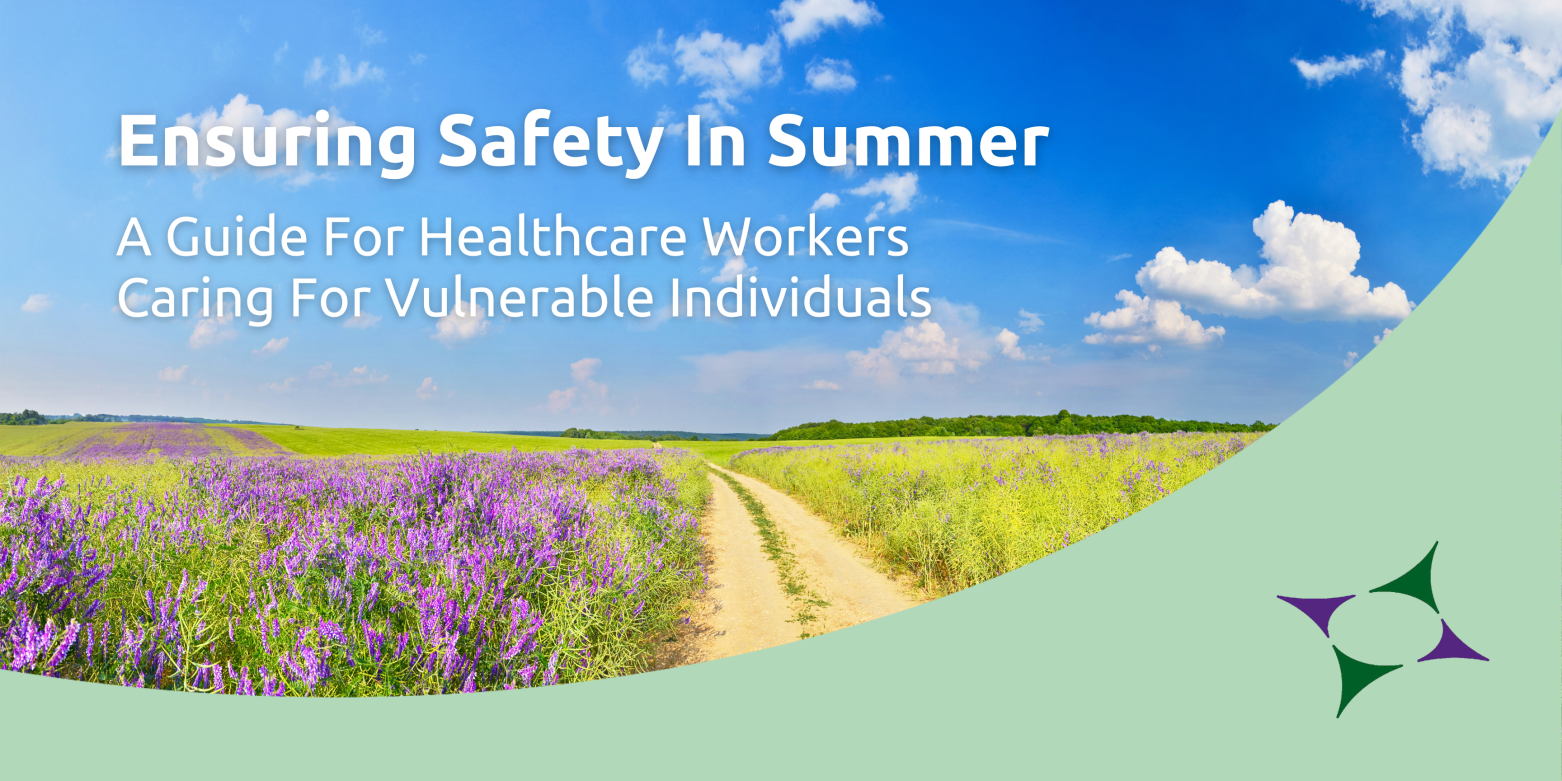
News
Working together, improving lives

Ensuring Safety in Summer: A Guide for Healthcare Workers Caring for Vulnerable Individuals
As healthcare workers, we have a crucial role in providing care and support to individuals who may be vulnerable due to physical or mental disabilities, whether directly or indirectly. The summer season brings its own set of challenges, including extreme temperatures, increased outdoor activities, and potential health risks associated with dehydration. It is imperative for us to prioritise safety measures not only for ourselves but also for the well-being of those under our care. In this blog, we’ll explore essential tips and precautions to ensure a safe and enjoyable summer for both healthcare workers and those they care for.

Stay Hydrated
Hot weather can lead to dehydration quickly, which can be particularly harmful to those with disabilities or those who may have difficulty expressing their needs. As a healthcare worker, is it crucial to set a good example by prioritising hydration for yourself. Where you can, encourage those under your care to drink plenty of water and always ensure that water is accessible to them at all times. Consider incorporating hydrating foods into their diets, such as fruits and vegetables which have a high-water content and refrain from consuming goods such as confectionary or coffee too.
Monitor Temperature
Extreme heat can pose real significant risks, especially for those with physical disabilities or chronic conditions. Take proactive measures to keep indoor environments cool and well-ventilated. You can do this by closing windows, drawing curtains at the hottest time of the day and where required, placing bottles of cold water near areas of ventilation to circulate cooler air. Regularly check for signs of comfortability in your residents to ensure optimal comfort around them. Encourage individuals to use fans or air conditions if these are available and where necessary inform them on the importance of avoiding prolonged exposure to direct sunlight.
Sun Protection
For those who may have limited mobility or sensory impairments, sun protection is paramount. Ensure residents under your care are adequately protected from harmful UV rays by providing and applying sunscreen with a high SPF regularly. Encourage the use of wide-brimmed hats, sunglasses and lightweight, loose-fitting clothing to shield from sun exposure. If individuals are unable to apply sunscreen themselves, offer assistance as needed.

Insect Bite Prevention
Summer often brings an increase in outdoor activities, which can expose vulnerable people to insects and their bites. Protect residents from insects by using appropriate repellents and keeping windows and doors screened. Educate those you are caring for about the risks associated with insect bites, such as allergic reactions or potential diseases like Lyme disease. Regular inspection for any signs of bites or stings and providing appropriate treatment or medical attention can help alleviate these symptoms.
Avoid Overexertion
Engaging in physical activities can be enjoyable and beneficial, but it’s crucial to prevent overexertion during summer months. Help residents strike a balance between staying active and avoiding excessive strain on their bodies. Encourage them to exercise during cooler times, should they need to, and suggest low-impact activities such as swimming or gentle stretching. Monitor them closely for signs of fatigue or heat exhaustion which can be shown through excessive breathing, slow movement or sluggish speech.
Mental Health Support
During the summer, mental health challenges can be exacerbated for those with disabilities. As healthcare workers, it is essential to provide emotional support and promote activities that enhance mental well-being and distract from feelings of discomfort. Encourage individuals to engage in low-activity hobbies, socialise with others and maintain a routine despite the challenges of heat. Monitor for signs of increased anxiety, depression, distress or isolation and connect individuals with appropriate resources or mental health professionals when needed.

As healthcare workers responsible for the well-being of vulnerable people, our commitment to safety and care extends beyond a clinical environment. By following these tips and precautions, we can create a safe and enjoyable summer for ourselves and those under our care. In summary; prioritise hydration, regulate temperature, provide sun protection, promote safe physical activities, prevent insect bites and support strong mental health. By doing so, we can ensure a memorable and hazard-free summer for everyone involved. Stay safe, and have a wonderful summer season! For more tips, be sure to follow us on social media, @deanhealthcare
